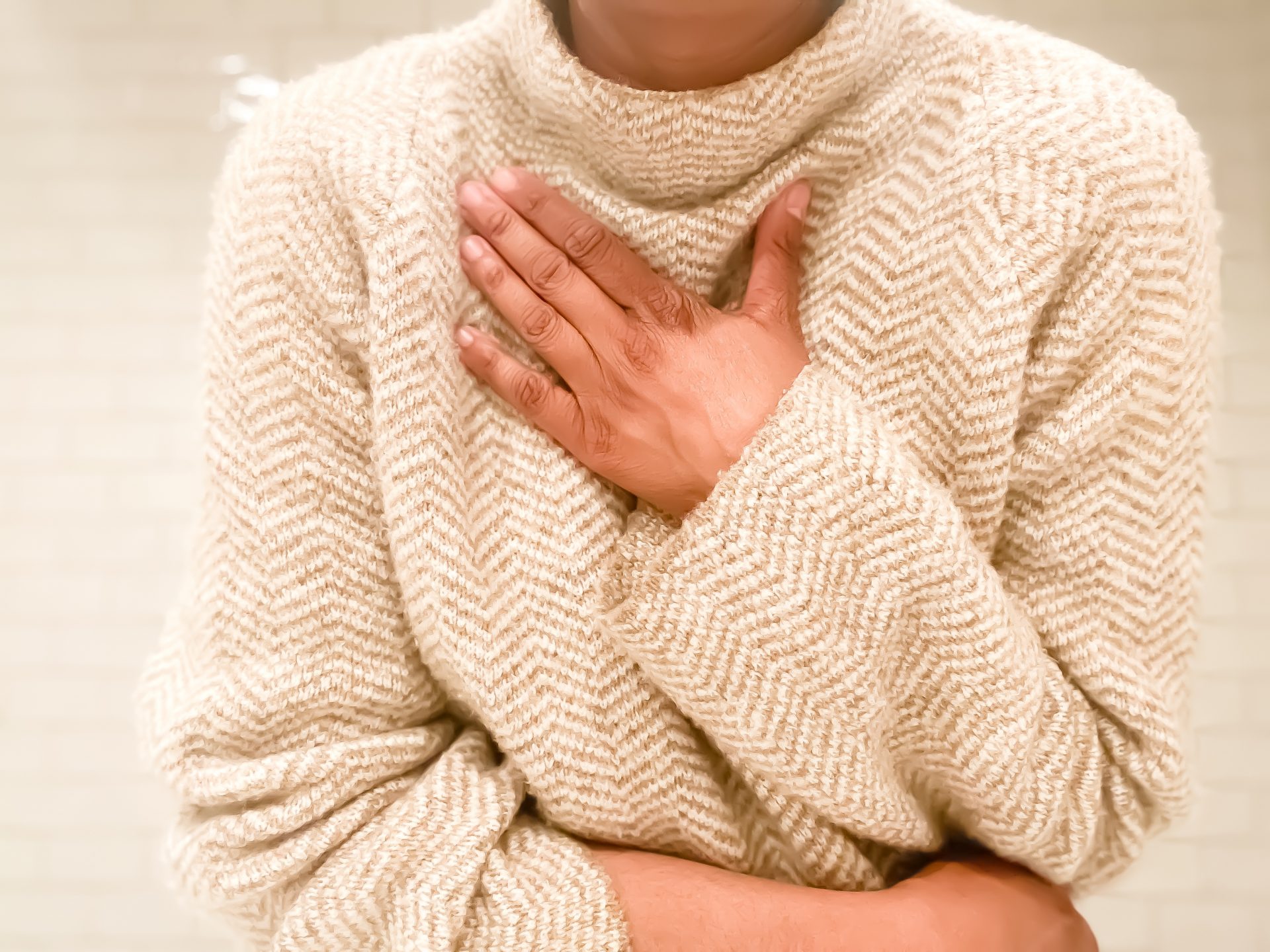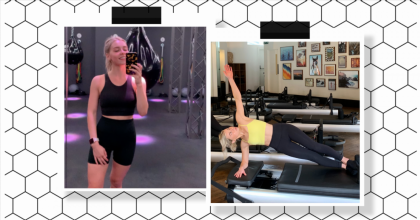“I don’t know how to exercise after Covid — and the advice sounds terrifying”
Exercising improves our health, but might it be detrimental after Covid? Senior writer Chloe Gray asks what that means for her recovery from the virus…
During my week on the sofa with Covid (I know, I’m two years late to the party), I made a habit of scrolling through my camera roll. It wasn’t an attempt to be dramatically wistful at a life once lived, but just a way to pass time between episodes of The Office and Your Home Made Perfect when my head couldn’t take the noise of TV conversation.
What struck me most was the active photos – the videos I’d taken in the gym to check my form or at spin, boxing or barre sessions with friends celebrating our sweat. As I laid there breathless from talking into my phone as I voicenoted friends, these reminders of physical fitness felt surreal. I couldn’t remember ever feeling like someone who had the energy to front squat my body weight or ball slam my way through circuit classes.
You may also like
Best gyms and exercise classes in London for cardio and strength workouts
It became clear that person wouldn’t be returning any time soon, either. Even as I started feeling better, 20-minute walks around my local park had to be followed up with hour-long naps. While moving again after a normal cold or period of illness was usually the thing that reignited my energy, it seemed to be more complicated after Covid.
Googling only added to my confusion (as is often the case), with some studies suggesting that exercise was essential to recovery while others suggest that exercising after the virus, even if you’re asymptomatic, puts you at risk of serious health conditions.
The conflicting information was highlighted by a recent paper from researchers at Leeds University, who expressed concern over “inconsistent advice” on how to resume physical activity after coronavirus. They said that while exercise is likely to play a part in helping people with long Covid, there needs to be more research into how we should balance movement and recovery.
Should you exercise after Covid?
“Covid can cause significant stress to our body systems, particularly on our immune system and on our energy production. As such, our body may not have the reserves to be able to resume exercise as we were doing previously,” says Dr Nirusa Kumaran, medical director of Elemental Health Clinic.
Movement is crucial to our health – my back already feels sore from the declining lack of strength in my core, my brain misses the endorphins (and, frankly, being inside my house for so damn long is bad for anyone’s mental health) and the less movement we do the less cardiovascularly fit we become. That’s why some of the advice suggests that challenging the heart and lungs is actually useful to re-strengthen them after Covid.
But because Covid is a respiratory illness, meaning it affects how the body transports oxygen around the body, “we need to be sure there is a sufficient supply of oxygen to our heart and muscles before starting to exercise,” says Dr Kumaran.

“However the main concern of returning to intense or vigorous exercise in anyone who has had Covid is worsening oxidative stress on the body, which can damage our cells and DNA and predispose us to more medical problems.”
How to return to exercise after Covid
So what does all of that mean to people like me, who want to feel fit again but are worried about moving? “It is important to take a fully personalised approach to exercise post Covid-19,” says Dr Kumaran.
Currently, general guidance advises that anyone returning to exercise after mild to moderate variations of the virus and who don’t have any evidence of long Covid should be symptom free for seven days before resuming exercise.
Even then, Dr Kumaran says we should go slowly. If day-to-day tasks are still making you tired, she says you’re probably not ready. She recommended trying to walk up and down some stairs to see if you feel the same sort of breathlessness you would have pre-Covid, or if it’s much harder than before. “If you’re ready to go back to working out, I would recommend gradually building up tolerance, and not attempting to climb the ladder of exercise intensity quickly,” she adds.
The Institute Of Sport recommends that once you’re stable at one phase of exercise – meaning you can perform it without fatigue and breathlessness – you should wait another seven days before increasing the intensity.
You may also like
Coronavirus: “I have ‘long-term Covid’, here’s how it’s affecting my fitness”
By these rules, I’m stuck at the stretching or strolling phase of exercise. Right now, taking it slow sounds right – it feels otherworldly to be jumping around in a high-intensity class. But there’s a fear about sustaining this slow pace for the foreseeable future. Overdoing it feels scary, but so does losing my old levels of fitness. As someone who thrived on regular activity, I can’t work out what’s right for my body or my mind.
“Stretching and breathing exercises are helpful for maintaining strength if that’s all you can manage,” reassures Dr Kumaran. “It is likely you will take time to recover, and setbacks can happen, so it is best to go easy on yourself and practise self-compassion.
“It is important to remember your body has been through a lot and has fought a potentially critical illness. Rest and recovery is actually more beneficial in the long term.”
There are hordes of people probably feeling similarly confused and worried about their fitness. Unfortunately, it seems there’s no easy formula – but I’ll be trying to move forward with a heightened sense of body awareness.
Images: Chloe Gray/Getty
Source: Read Full Article
